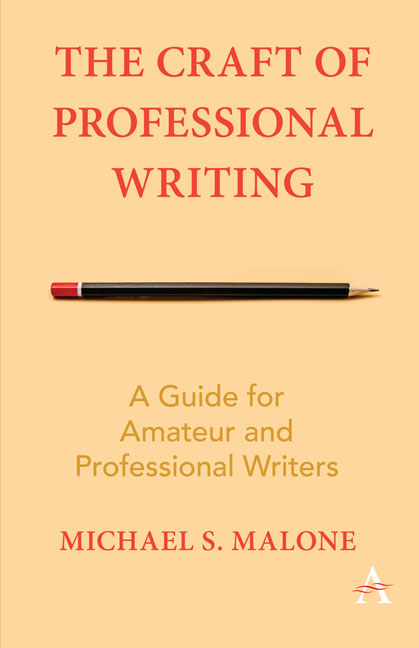Book contents
- Frontmatter
- Dedication
- Contents
- Introduction
- Part One Basics
- Part Two Corporate Careers and Disciplines
- Part Three Writing Careers in Media
- 8 Blogger
- 9 News Reporter
- 10 Critic
- 11 Essayist
- 12 Book Author
- 13 Television and Radio News Reporter
- 14 Screenwriter and Playwright
- 15 Fiction Writer and Novelist
- 16 Academic Track
- 17 Miscellaneous Writing
- Part Four The Work of Professional Writing
- Further Reading
- Suggested Assignments
- Index
8 - Blogger
from Part Three - Writing Careers in Media
- Frontmatter
- Dedication
- Contents
- Introduction
- Part One Basics
- Part Two Corporate Careers and Disciplines
- Part Three Writing Careers in Media
- 8 Blogger
- 9 News Reporter
- 10 Critic
- 11 Essayist
- 12 Book Author
- 13 Television and Radio News Reporter
- 14 Screenwriter and Playwright
- 15 Fiction Writer and Novelist
- 16 Academic Track
- 17 Miscellaneous Writing
- Part Four The Work of Professional Writing
- Further Reading
- Suggested Assignments
- Index
Summary
“Blog” is a neologism created from the phrase “web log.” Strictly speaking, a blog is a web site on which an individual or group of users record opinions, information, interesting links, solicited comments and, more rarely, conduct traditional field reporting, on a regular basis. There are an estimated 200 million bloggers currently active in the world. The universe of bloggers is usually called the Blogosphere. While it is possible to earn a living as a blogger, the number of those who do so is extremely small, as the competition for readers is high, and the business model itself not particularly lucrative.
Why blog?
Blogging sits at the nexus of the natural human desire to share our thoughts and beliefs with others, with the hope that our words will live forever, and with the speed and infinite scalability of modern digital technology. Most bloggers get into the profession because of its very lowcost ease of entry (most blogging software is either cheap or free), and they stay in despite the limited financial return because they enjoy both the platform for their writing and opinions and the interaction with loyal and equally opinionated readers.
A brief history of blogs
Blogs began as extended diaries entries (hence “log”) and essays on the pioneering sites of the Internet, such as the Well, Compuserve, BBS sites, and so forth. Successful diarists— usually the most colorful and opinionated writers and experts in tech- related fields— found they were gaining loyal, even obsessive, followers and continued because they enjoyed the response.
Archival data suggests that the first real blogs appeared in 1994– 1995 at Swarthmore College by a student named Justin Hall— and by other pioneers such as science- fiction writer and essayist Jerry Pournelle, who moved his Byte magazine column “Chaos Manor” (founded in 1980) to the Web.
The transformative event in the history of blogging was the September 11, 2001 terrorist attack and the perceived failure of traditional media to keep up with the pace of news. The events of 9/ 11 made the reputation of Matt Drudge, and his news portal, “The Drudge Report,” which would soon have millions of visitors each day, became a model of how much influence a single individual could have using the Web.
- Type
- Chapter
- Information
- The Craft of Professional WritingA Guide for Amateur and Professional Writers, pp. 111 - 120Publisher: Anthem PressPrint publication year: 2018



